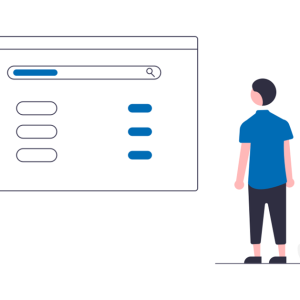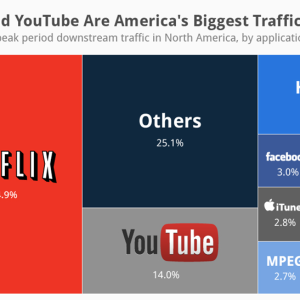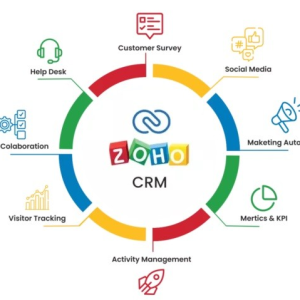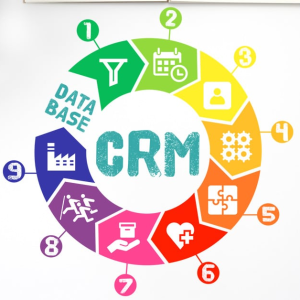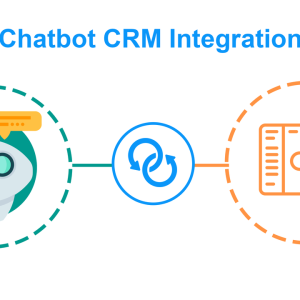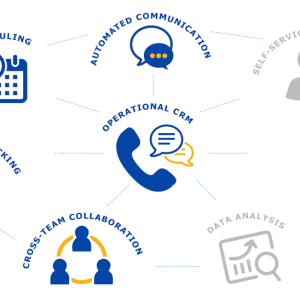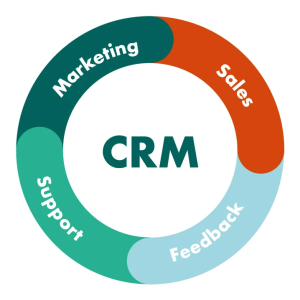Introduction

63% of internet users will click on a Google paid search ad.
Clutch
When it comes to bidding strategies, there is no one-size-fits-all approach that will work for every business. Instead, you need to experiment and find the right combination of factors that will get you the results that you want. In this guide, we’ll cover the different types of bidding strategies that you can use in SEM, as well as how to find the perfect bid price for your keywords.
Bidding in SEM
SEM bidding is an art and one that takes time to master. When it comes to bidding like a master in SEM, there are a few things to consider. The first is that you need to bid on the right keywords. There are a few different ways to do this.
- You can use keyword research tools to find keywords that are relevant to your business and that have a high search volume.
- You can also use competitor analysis to see what keywords your competitors are bidding on.
Once you’ve found the right keywords, you need to bid on them.
This is where things can get a bit tricky. You need to find the right balance between bidding too high and too low. If you bid too high, you’ll end up paying more for each click, but if you bid too low, your ad may not be seen by as many people.
Lesson#1: Finding the balance
To find the right balance, you’ll need to experiment with different bid prices. Start with a lower bid and gradually increase it until you start seeing results. Keep track of your results so you can adjust your bid accordingly.
Bidding is an important part of SEM, but it’s not the only thing you need to consider.
Lesson#2: Ad Relevance
You also need to make sure your ad is relevant to the keywords you’re bidding on. This means including the keywords in your ad copy and make sure your ad appears on websites that are relevant to your business.
You can use several different strategies to improve your ad’s relevance.
Negative Keywords
Negative keywords are words or phrases that you don’t want your ad to show up for. For example, if you’re a plumber, you might not want your ad to show up when someone searches for “plumbing supplies.”
Long-tail Keywords
Long-tail keywords are more specific, targeted keywords that have a lower search volume. They may not bring in as many clicks or conversions as your main keyword, but they generally have a higher conversion rate because they’re more relevant to the searcher’s query.
Overall, using bidding strategies in SEM is an effective way to improve your website’s ranking and get more traffic to your site. By experimenting with different bid prices, matching your ad copy to your keywords, and using negative and long-tail keywords, you can make sure that your ads are seen by people who are interested in what you have to offer. With a little bit of time and effort, you can see a significant improvement in your website’s traffic and ROI.
What Are You Bidding On Exactly?
Keyword Bidding

Bidding on the right keywords is crucial to the success of your SEM campaign. To find the right keywords, you’ll need to do some research using a tool like Google AdWords Keyword Planner. This will help you identify which keywords are most relevant to your business and which ones are being searched for most often.
Once you’ve identified a few potential keywords, you can start experimenting with different bid prices to see what gets you the best results.
Types of keywords for bidding
There are a few different types of keywords you’ll need to consider when bidding on SEM campaigns.
BMK: Broad Match Keywords
Broad match keywords, which are general terms that are relevant to your business. For example, if you sell shoes, a broad match keyword might be “shoes.” Broad match keywords are a good option if you’re just starting with SEM and are trying to build up your campaign.
PMK: Phrase Match Keywords
Phrase match keywords are more specific than broad match keywords. For example, if you sell running shoes, a phrase match keyword might be “running shoes.” Phrase match keywords can be a great way to target a specific audience with your SEM campaign.
EMK: Exact Match Keywords
Exact match keywords are the most specific and are only triggered when someone searches for that exact term. For example, if you sell red running shoes, an exact match keyword might be “red running shoes.” Choosing the right keywords is essential to ensuring that you’re targeting the right audience with your campaign and achieving good results.
Header Bidding

Another strategy you may want to consider when bidding on SEM campaigns is header bidding. This approach allows you to get access to inventory and display your ads before the Google auction has even begun. By using header bidding, you can ensure that you are getting access to the inventory first, giving you a competitive advantage over other advertisers who are vying for the same spot.
These are just a few of the many strategies you can use when bidding on SEM campaigns.
By taking the time to learn about these different approaches, you can ensure that you’re getting the most out of your campaign and achieving good results. To find the right strategy for your business, it’s important to experiment with different approaches and see what works best for you. By doing this, you can fine-tune your campaign and achieve the best results possible.
#1 Tip: Reduce AD Spend
The best way to reduce ad spend is by bidding on a campaign and then stopping it before the end. It’s an easy win for marketers because they’ll get their money back as well! (Sshhh, we did not tell you that).
How Are You Bidding Exactly?
#1 Creating Bidding Strategies
SEM bidding strategies are either manual or automated. If you’re willing to do the work, then this is for YOU!
Bidding Strategies #Manual Bidding
Manual Bidding allows you to have complete control over the amount you spend on each keyword. This can be a great option if you have a good understanding of your target market and know exactly how much you’re willing to pay for each click. It’s also worth noting that manual bidding can be more time-consuming than automated bidding, so it’s important to weigh the pros and cons before deciding which approach is right for you.
Bidding Strategies #Automated Bidding
Automated bidding uses algorithms to automatically adjust the amount you spend based on different factors like the time of day or the geographic location of the searcher. This approach can be very effective in helping you get the most bang for your buck, as it can adjust bids based on seasonal trends or sudden changes in traffic patterns.
And if you’re looking for a way to automate your SEM campaigns, six strategies will get the job done.
Bidding Strategies #Conversions Bidding
When it comes to conversion bidding, you’ll want to use a different strategy than you would for general keywords. You’ll need to bid higher for keywords that are more likely to result in a conversion, and you’ll also need to track your results so you can make necessary adjustments. By using conversion bidding, you can improve your website’s ranking and increase the number of sales or leads that you generate.
Bidding Strategies #CPC (cost-per-click) Bidding
This is perhaps the most common method of bidding, where you determine a set price that you’re willing to pay each time someone clicks on one of your ads.
With this strategy, you set a fixed price for each click on your ad. This can be a great way to control your expenses, and it can also help you to achieve a better return on investment.
Bidding Strategies #CPA (cost-per-acquisition) Bidding
This strategy focuses on getting conversions rather than clicks and includes an additional cost component related to the value of the conversion. The conversions can be sales, leads, phone calls, or any other metric that is valuable to the business. This strategy is often used by businesses that are selling high-value items or services.
Bidding Strategies #CPM (cost-per-impression) Bidding
With this method, you’re essentially paying for your ad to be seen, regardless of whether it’s clicked on or not. This is generally best suited for websites that have a high volume of traffic or want to promote their brand and build awareness. However, it can also be a useful strategy for new sites that are still in the process of building up their traffic, as having your ad appear frequently on other websites is an effective way to get more people to visit your site.
Bidding Strategies #Target ROAS (return on ad spend) Bidding
This is a more advanced strategy that takes into account not just the cost of the conversion, but also the value of that conversion. By factoring these things into the equation, you can optimize your bid prices to hit a certain ROAS. This strategy is particularly useful when trying to improve brand awareness or drive more sales on your website.
Bidding Strategies #Target CPA Bidding
Another advanced strategy, this one sets a target CPA for your ad campaigns and adjusts your bids accordingly to try and reach that goal. This strategy can be a good choice if you have a limited budget since it will automatically lower your bids so that you stay within your spending limits. However, it’s important to keep in mind that this strategy may not always get you the best results – sometimes your campaigns may perform better with manual bidding, which allows you more control over how much you’re willing to spend.
It’s important to keep in mind that you’ll need to continuously monitor your campaign and make adjustments as necessary. This means that you’ll need to set aside some time each week to check in on your progress and see how your keywords are performing. By doing this, you’ll be able to make the necessary changes to your campaign to improve your results.
Bidding Strategies Summary

Let us get to the bottom of this and know more!
Why should you want to know more?
Because the last thing you want is a poorly done job. Why not invest a little time in learning before investing in earning.
#2 Adjust Bids in Google Ads
Did you know that when companies bid on contracts, they often do so with an eye toward the best possible price tag? But what happens if this isn’t true and one company’s bids are too low or high based on certain symptoms. Well as much as creating is important (and it should never come at any expense), adjusting needs to happen too!
Reasons why you need to adjust your bids:
#1 To get the best possible ROI for your campaign
If you find that certain keywords are performing better than others, you may want to adjust your bids accordingly so you can capture more of the traffic for those keywords.
#2 To target specific audiences
Audiences such as those who are located in certain geographical regions or who have certain demographics.
#3 To control the position of your ads
If you want your ads to appear higher up on the search results page, you need to increase your bid so that they will be more competitive with other advertisers. This can be a great way to increase the visibility of your ads and improve your chances of getting clicks.
#4 To fine-tune your ad targeting
For example, if you want to show your ads to people who have searched for a particular keyword in the past, you can use bid adjustments to target those users specifically. This can help you find more qualified leads and improve your ROI.
#5 Target days
Another important factor to consider when adjusting bids is the time of day or day of the week when your ads are most likely to get clicked on. For example, if you notice that your ads tend to get a lot of clicks on weekends or during certain times of day, you can adjust your bids accordingly so that they will be more competitive during those times.
Overall, the key to success with bidding strategies in Google Ads is to experiment with different bid prices and other factors, while also tracking your results so you can make adjustments as necessary. Further, let us talk about the best feature google has to offer to adjust bids.
Google Ads Feature to Adjust Bids
Using Bid Modifier Feature
Bid modifiers allow you to adjust your bids depending on the context of the search. For example, you can set a higher bid for searches that occur on desktop devices, or a lower bid for searches that occur on mobile devices. This can be a great way to save money on your campaign while still achieving good results.
Few reasons why you should use bid modifiers in your Google Ads campaigns:
#1 Bid modifiers can help you to target your ads more effectively
You can use them to adjust your bids for particular keywords or geographic locations, which can help you to reach your target audience more effectively.
#2 Bid modifiers can help you to optimize your ads and improve your results
By experimenting with different bid prices, you can find the optimal price that will maximize your website’s traffic and conversion rates.
#3 Bid modifiers can help you to make more strategic decisions about where you should focus your budget
For example, if one of your keywords is generating a lot of traffic, but not many conversions, you may want to lower your bid for this keyword and focus more of your budget on keywords that are generating better results.
Overall, using bid modifiers in Google Ads can be a powerful tool to help you improve your website’s performance and get the most out of your campaign.
How to determine the perfect bid price
The perfect bid price will depend on a variety of factors, including your goals for the campaign, your target audience, and the competitiveness of your keywords. Some general tips include:
– Carefully consider keyword research to identify high-potential terms that align with your business objectives.
– Track the results of your bids over time and make any necessary adjustments to ensure that you’re getting the results that you want.
– Try different bid prices for each keyword to find the sweet spot that gives you the best results.
Conclusion
Overall, using bidding strategies in Google Ads can be a great way to improve your website’s ranking and visibility. By carefully considering keyword research, tracking your results, and adjusting your bid prices, you can find the perfect price that will maximize your traffic and conversions. So if you are looking for ways to improve your online marketing efforts, consider working with our agency to help you get sorted and start seeing results today! For more information, visit our website at 12channels.in


